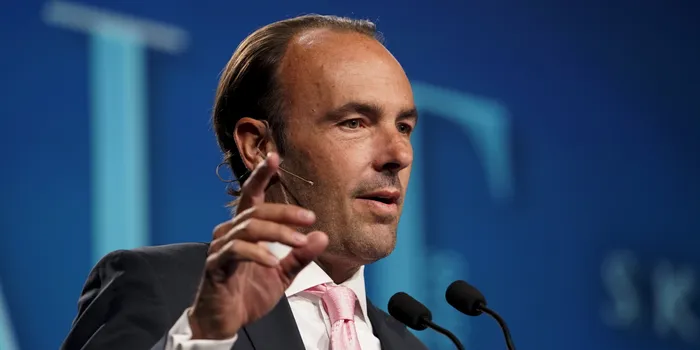Kyle Bass: America Must Shift to a Wartime Economy and Reform Its Defense Acquisition System
Investor Kyle Bass says America must adopt a wartime mindset, overhaul its outdated defense procurement system, and invest more in innovation to counter China, Russia, Iran, and North Korea.

NEW YORK — American investor and Hayman Capital Management founder Kyle Bass is calling for the United States to shift into a wartime footing and overhaul its outdated defense procurement system to confront mounting global threats.
In an interview with CNBC, Bass said the U.S. Department of Defense (DoD) still operates under a “Soviet-style procurement system that rewards mediocrity, sloth, and cost overruns,” while the world faces escalating tensions in Europe, the Middle East, and the Indo-Pacific.
“We need to push ourselves into a wartime footing, especially on defense procurement. Our current system is not prepared for a high-intensity conflict,” Bass warned.
Private Capital Mindset at the Pentagon
Bass praised the leadership of Defense Secretary Steve Feinberg, who, alongside his team, is introducing a private equity mindset into the Pentagon — bringing urgency, accountability, and performance-based management to defense spending.
“There’s $200 billion being deployed into critical areas — from minerals and semiconductors to next-gen defense technologies — and now it’s being run by people who know how to get things done,” Bass said.
“The Pentagon just greenlit us with $1 billion to deploy into loans for defense startups. We made $300 million in loans last year, and we’ll scale that to $1 billion this year. Public-private partnerships like this are vital to rebuilding our stockpiles and ensuring deterrence.”
Production Bottlenecks Pose Strategic Risks
Bass highlighted the alarming lack of U.S. manufacturing capacity for precision weapons, using Tomahawk cruise missiles as a stark example.
“Raytheon can only produce five Tomahawks per month. In one strike, we launched 30 — half a year’s production in a single operation. That’s unacceptable if a major conflict breaks out.”
He stressed that the U.S. must not only modernize its production lines but also secure supply chains for critical defense materials.
Allies Must Step Up
When asked about allies, Bass emphasized that Europe remains far behind in defense spending commitments.
“Germany spent just 1.5% of GDP on defense last year — even after three years of ground war in Europe. Europe needs to wake up. NATO allies must finally meet the 2% target.”
Bass argued that the West must reunite in the face of growing cooperation among China, Russia, Iran, and North Korea.
3% of GDP Is Not Enough
Bass said the U.S. cannot afford to reduce defense budgets and that 3% of GDP is far below historical levels.
“During the Cold War, we averaged 5.5 to 6%. In World War II, defense spending reached 47% of GDP. If we want real deterrence, we have to invest more — and smarter.”
Rejecting “Woke Sensibilities” in Defense
Bass criticized what he described as “woke sensibilities” within the Pentagon, arguing that they have no place in war-fighting.
“This is not about warmongering. No one wants war — Trump hates war. But when you look at our adversaries and how coordinated they are, we must focus on readiness and capacity, not ideology.”
Innovation Is America’s Advantage
Bass believes that American innovation remains the country’s greatest strength — but it’s being stifled by a procurement system that overwhelmingly favors large defense primes.
“Ninety-nine percent of the defense budget goes to the big primes. Startups and innovators are left behind — even though they’re the ones building the technologies that will define future wars.”
He said reforms in the National Defense Authorization Act (NDAA) are moving in the right direction, particularly the Senate version that expands funding access for defense tech startups.
Key Takeaways
- The U.S. must shift to a wartime economy mindset to deter global threats.
- Defense procurement reform is essential — faster, more flexible, more innovative.
- Private capital and startups are critical for building next-generation capabilities.
- NATO allies must increase defense spending and share the burden.
- The U.S. should return to Cold War-level defense investments to ensure deterrence.
Source: CNBC





